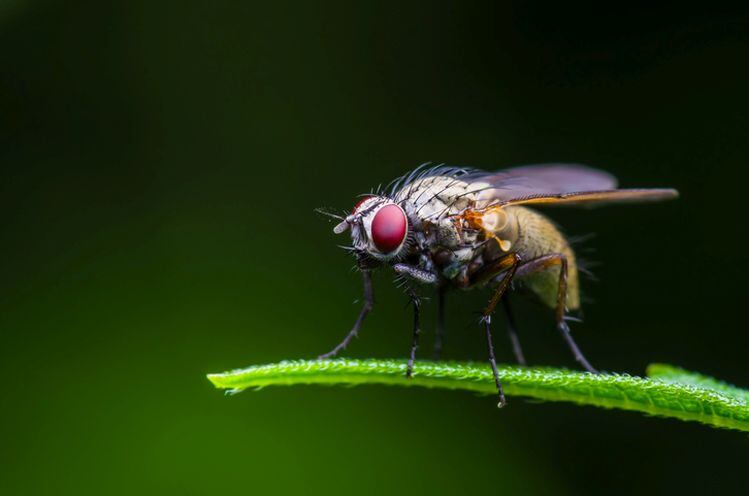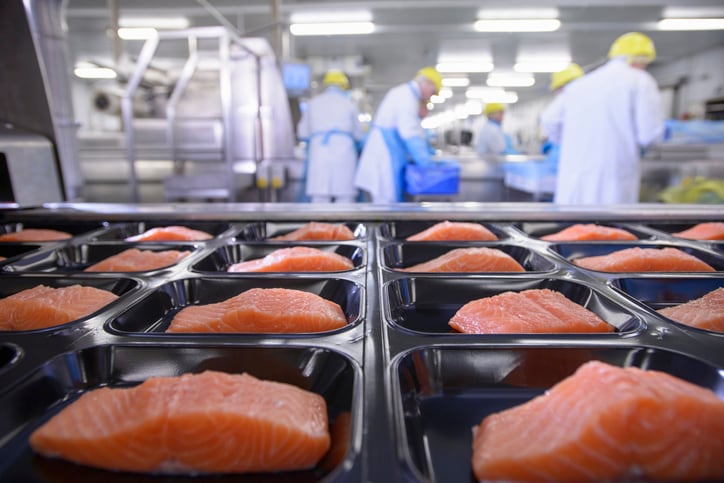Co-founded by cardiologist Dr Uma Valeti in 2015, UPSIDE Foods recently opened an innovation center and pilot facility in Emeryville, CA, which can produce 50,000lbs of finished product a year, with a future capacity of over 400,000/lbs/year – a drop in the ocean in the context of conventional meat production, but a significant milestone for an industry that didn’t even exist seven years ago.
The latest round* – let by Temasek and the Abu Dhabi Growth Fund and backed by Cargill, Givaudan, and Tyson Foods among others - will fund a larger scale facility capable of producing multiple species of meat in ground and whole cut formats, with an initial focus on chicken, said the company, which could go to market tomorrow from an operational perspective, but is working with regulators to secure approval before launching in the US.
The capital will also go towards expanding the team, consumer education efforts, R&D, and “building a robust supply chain for critical cell feed components,” said the firm, although COO Amy Chen did not explain whether UPSIDE Foods will produce some high-value growth factors or other media components in-house or strengthening partnerships with third parties specializing in industrial fermentation.
With every new plant, UPSIDE Foods will ‘continue to refine our processes to make them more efficient’
UPSIDE Foods has made significant progress in reducing the cost of growth media and finding efficiencies in bioprocess scale up, such that the larger plant won’t look exactly the same as the pilot one (only larger), Chen told FoodNavigator-USA.
“There's always a next generation of technology that can be more effective, more efficient, and so with this [up and coming commercial-scale] facility, and the next one, frankly, for many generations to come, we'll be simultaneously producing and putting amazing delicious products out into the world, but also continuing to refine our processes to make them more efficient.”
Bioreactor size: ‘We honestly don't even yet know what the limits are’
So will the bioreactors at the next site be much bigger than the ones in Emeryville, or is there a law of diminishing returns in this respect once you hit a certain size?
“There are things that you worry about in terms of osmotic pressure or shear forces on cells as you scale up, and we can test these things in our EPIC facility [in Emeryville] to understand, if I scaled this up, what would it feel like to the cells, and do the processes still work?" said Chen
"But we're very encouraged by what we've seen so far since the opening of the plant. We know that the processes that we have are sound, and that they can scale.”
When it comes to bioreactors, she said, "We honestly don't even yet know what the limits are, but we will make some final decisions around the size of the cultivators as it gets closer to the [construction] date.”

What is persuading investors to part with capital?
So what persuaded investors to part with such jaw-dropping sums, when we are being told by some commentators that growing meat from animal cells, outside of an animal, faces “intractable” problems at food scale?
A combination of belief in the team and its ability to execute its vision, improvements in key metrics that will make the unit economics of cultivated meat production progressively more appealing (“a deep amount of confidence in the state of our technology”), and the conviction that current ways of producing meat are unsustainable, claimed Chen.
The current socio-economic turmoil also highlights the fragility of the conventional meat supply chain, she said: “We were raising money [against a backdrop of] Omicron, [the conflict in] Ukraine, and just a tremendous amount of macro-economic instability and supply chain disruptions, which means the price of meat [from slaughtered animals] is going up and up.
“And the last thing [the really moved the needle for] investors is the taste. As I’ve said before, before I agreed to come on, I had to try the meat. I had that first bite and realized that it was simultaneously one of the most unremarkable things and one of the most remarkable things I've ever eaten. It’s just meat.”
She added: “That’s not to say that there aren't real challenges that still lie ahead, which we absolutely know, but we've got a track record of tackling some of the biggest challenges and we're excited to continue on the journey."
Processed products and whole cut products
Asked about the first chicken products UPSIDE Foods plans to launch, Chen said: “If you look at our process you can produce a whole muscle tissue at the end. If you stop partway through, you essentially are growing cells in suspension that have not yet connected to form tissue.
“So we can essentially harvest the cells at that stage so they can be blended with other components to form a blended type product. Or we've got a series of patented cultivators specially designed to facilitate the growth of whole muscle to form whole cut products, and we don't need to use any kind of edible scaffolding.”
She added: “We can do monocultures and we can do co-cultures… and there are a number of tools at our disposal to produce the final finished products.”
GFI: 2021 a year of robust progress for cultivated meat
According to the Good Food Institute (GFI), which promotes plant-based, fermentation-based, and cultivated (cell-cultured) alternatives to meat, dairy, eggs and seafood, more than 107 startups are now focused exclusively on developing cultivated meat inputs or end products, while 64 companies, largely in the life sciences, have publicly announced a business line in cultivated meat.
Investment in cultivated meat companies topped $1.36bn in 2021, with meat giant JBS announcing a $100m investment including an agreement to acquire Spanish company BioTech Foods, invest in the construction of a new production facility in Spain, and establish Brazil’s first cultivated protein R&D center, said the GFI in a recent state of the industry report on cultivated meat, which you can download HERE.
Bioreactor bottleneck?
Several firms including Future Meat Technologies, Wildtype, UPSIDE Foods and Shiok Meats have now opened pilot facilities for cultivated meat, which is now on the market in Singapore, and awaiting regulatory approval in several other markets, said the GFI, noting that “any near-term commercial launches will be very small scale, with limited product availability and premium positioning owing to the high cost of producing smaller volumes.
“Pilot-scale cultivated meat facilities will produce hundreds or thousands of kilograms of biomass annually. This means that companies are likely to have capacity to supply a limited number of high-end restaurants in the coming one to three years, along with producing samples for regulators and key industrial partners.”
Meanwhile, key hurdles remain, said GFI, which says “expected needs far outstrip existing global bioreactor capacity.”
*Other investors in the Series C round include Bill Gates, John Doerr, Kimbal and Christiana Musk, Baillie Gifford, Cercano Management, CPT Capital, Norwest Venture Partners, SALT Fund, SoftBank Vision Fund 2, SOSV’s Indie Bio, and Synthesis Capital.
The regulatory pathway for cell-cultured/cultivated meat in the US

Dr Eric Schulze, VP product and regulation at UPSIDE Foods (pictured right), told FoodNavigator-USA in a recent interview that, “FDA under its existing authority, will evaluate the safety of the product and the process as it would for any food product or new ingredient through a voluntary consultation process.
“Once the agency has no further questions regarding the safety of our product, it passes that determination along to USDA, if it's meat or poultry, where the USDA will use that determination to perform its suitability assessment as it would for any meat or poultry ingredient.
“Then, the assessment forms that basis of judgment for issuing a grant of inspection for the facility and approval for any label to be put on packages, again, just like any new meat product."
Asked to clarify what information will be shared with the public about the way individual companies are producing cultivated meat and seafood products after it completes its pre-market consultations, an FDA spokesperson told us:
“Other than proprietary information protected by statute, our current thinking is we expect to disclose all information about an individual consultation to the public after we complete our review.”

UPSIDE Foods’ cell media – the nutrient-rich broth it uses to feed cells that will turn into cell-cultured or cultivated meat – is now 100% ‘animal component free,’ says the firm, which described the milestone as a “biological breakthrough.”
The move is significant, given that it defeats the purpose of growing meat outside of an animal if you need animal-derived components to produce it, says the company.
“Eliminating the use of animal components has been a major goal for the entire cultivated meat industry since UPSIDE founded the industry in 2015, as animal components pose challenges to both the mission and economics of cultivated meat.”
Image credit (chicken tacos): UPSIDE Foods




